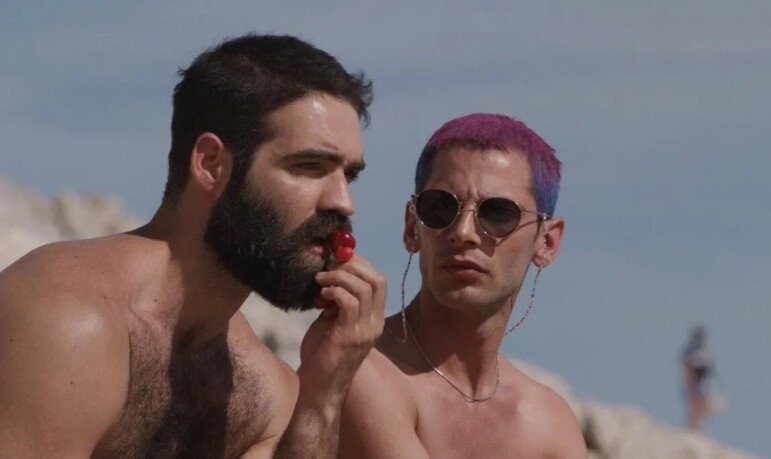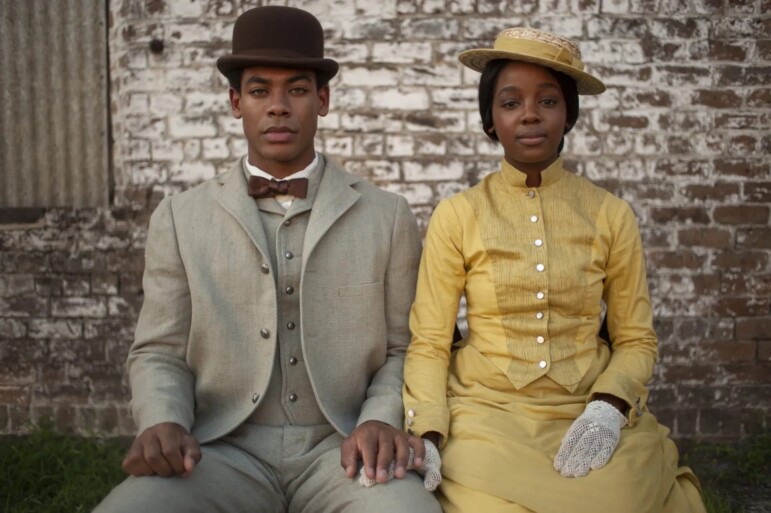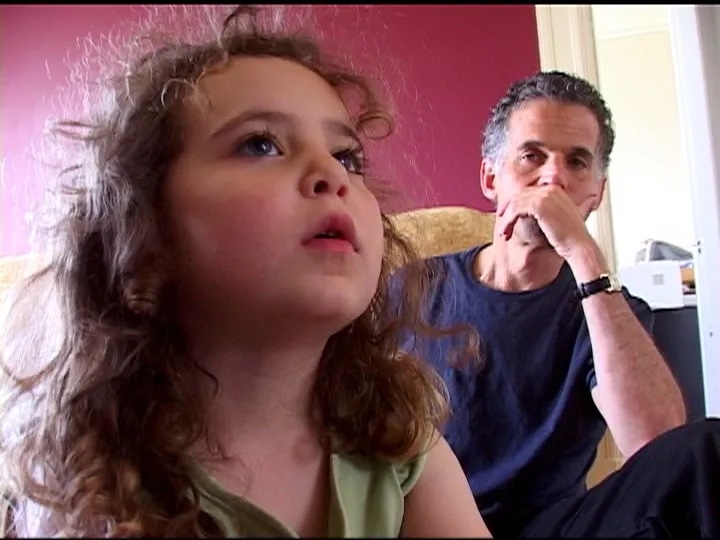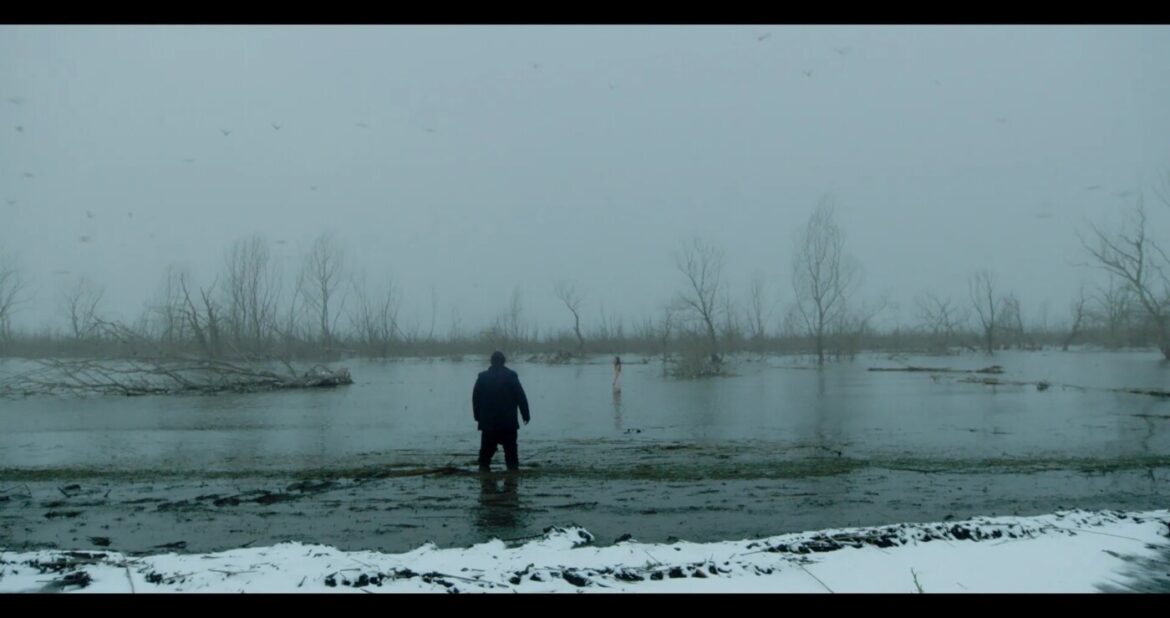The local spring movie season blossoms early this weekend with three must-see events: the 21st San Francisco Greek Film Festival, Berkeley Art Museum and Pacific Film Archive screenings of Barry Jenkins’ Amazon Prime series “The Underground Railroad” with the Oscar-winning filmmaker in attendance, and a showcase of innovative works by Jay Rosenblatt, a Bay Area treasure.
Pass the Remote gives you the lowdown.
The San Francisco Greek Film Festival’s exceptional program includes 41 films: eight narrative, nine documentaries and 24 shorts. It runs March 16-23 at the Delancey Street Screening Room, 600 The Embarcadero; some selections will stream as well.
Tickets cost $15, except $50 for opening and closing nights, which include receptions. For tickets and the entire slate, visit https://grfilm.com/2024-festival/.
The opening night feature “Behind the Haystacks” failed to make the cut on this year’s Academy Awards best international feature shortlist. A case, though, could be made that Asimina Proedrou’s tragic family drama belonged there. It certainly resonated with audiences and critics in Greece, collecting numerous awards and honors.
Perhaps more noteworthy: It’s also Proedrou’s debut feature, yet it seems like the work of a veteran filmmaker. It’s told in three chapters and from the perspectives of three family members: stressed-out, financially strapped husband Stergios (Stathis Stamoulakatos), who makes a desperate move that involves refugees and costs many others in the end; his wary wife Maria (Eleni Ouzounidou), who tries to keep her sleazy, overbearing brother at a distance; and their daughter Anastasia (a sensational Evgenia Lavda, slated to appear at the screening) who secretly entertains a desire to become a performer and is in love with a politically minded man.
As with most tragedies, adversities pile on until they become an unstable mountain of trouble. Proedrou’s gorgeous to-look-at feature never offers false hope, yet it doesn’t end on an entirely dour note. Expect to see Proedrou’s name pop up in the future on that Oscar list. She’s that good. (6 p.m. March 16; also streaming)

If you don’t want an intense experience like “Behind the Haystacks,” try basking in the erotically charged glory of the meta and robustly queer “The Summer with Carmen.” What a treat. A word of advice, though: If you’re turned off by male nudity and sizzling sex scenes, this is not the film for you.
Director Zacharias Mavroeidis’ sun-and-fun confection offers both in abundance. It opens on a queer Athens beach where friends/roomies Demosthenes (the handsome Yorgos Tsiantoulas) and Nikitas (Andreas Labropoulos) shake down ideas for a low-budget feature based on Demosthenes’ love travails and escapades, and an ever-so-cute dog Carmen. Tsiantoulas has a terrific screen presence; his playful exchanges with the perceptive Nikitas (who knows him well enough to call him out when he’s not being true to himself) are priceless, as are the other relationships vying for Demosthenes’ attention. They include: his aware mom, the adorable dog with bathroom issues, an indecisive ex and a hunky new hookup.
“The Summer with Carmen” is such a breezy, sexy lark, you almost overlook how it’s a successful rare queer romcom in which the love connection doesn’t really matter that much in the end. (7 p.m. March 19, with Mavroeidis attending)

Another treat awaits fans of Barry Jenkins at the Pacific Film Archive in Berkeley. Beginning March 15, the accomplished director of “Moonlight,” “If Beale Street Could Talk,” and “Medicine for Melancholy” (set in San Francisco) will appear in conversation about his praised adaptation of the Pulitzer Prize-winning novel “The Underground Railroad.”
The first program (chapters 1-2 on March 15) is sold out. Yet seats are available for 3 p.m. March 16 (chapters 3-4); 7 p.m. March 16 (chapters 5-7); 1 p.m. March 17 (chapters 8-9); and 5 p.m. March 17 (chapter 10). There’s also a screening of “The Gaze” (11:30 a.m. March 17), a nearly hour-long look at the project through the eyes of the actors. Jenkins and various guests will attend. Those concerned about just dropping in at the midway point can get caught up by watching episodes on Amazon Prime.
For details about the program, visit bampfa.org.
One of the Bay Area’s most unique, accomplished filmmakers gets a well-deserved spotlight on his generous works, remarkable meditative pieces with universal themes ranging from parenting to bullying. His films are filled with gentle insight, introspection and candor.

“How the Light Gets In: The Films of Jay Rosenblatt” starts at 4 p.m. March 16 at the Roxie in San Francisco. It’s a fitting locale, given the theater presented the acclaimed work, including two short documentaries — “When We Were Bullies” and “How Do You Measure a Year” — that earned him Oscar nominations.
The program includes these short-form films: 2005’s “Phantom Limb”; chapter 1 of 2000’s “King of the Jews”; 2017’s “Kodachrome Elegies” (a San Francisco premiere); and 2008’s “Beginning Filmmaking” (also a Bay Area premiere).
Rosenblatt will be joined by author, film scholar (particular regarding documentaries) and critic Bill Nichols. Tickets range from $5 to $11 at https://roxie.com/.
